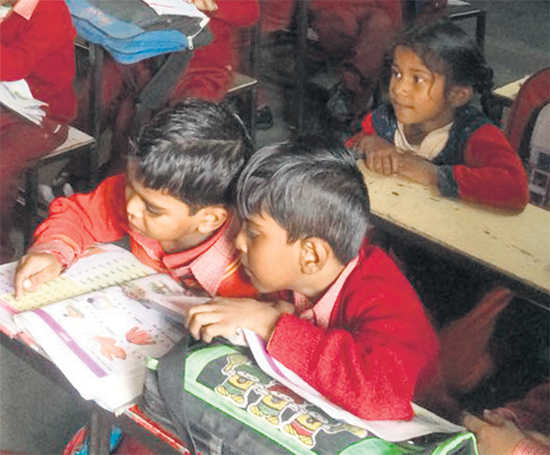
Sukhdeep Brar
Former IAS officer with experience in education at the World Bank and ADB
The findings of the Annual Status of Education Report (ASER) for 2016 were made public in January. For the first time, the ASER survey shifted focus from the primary school cohort to the 14-16 age group. The results are alarming. After the completion of eight years of schooling, a significant proportion of the 14-16-year-olds lacks foundational skills in reading and arithmetic.
As part of the above assessment, surveys were conducted among 2,155 youth in 119 villages in Amritsar and Bathinda districts. The results are equally worrying. Approximately 4 per cent can read text only at grade 1 level and around 5 per cent cannot even recognise words. Approximately 8 per cent cannot read a full sentence in English despite studying the language from grade 1. Over 33 per cent have difficulty following written instructions. In Amritsar, over 77 per cent children could not identify Punjab on a map, almost 30 per cent could not name their state, and only 37 per cent could calculate time. The results from Bathinda are slightly better. Over 55 per cent were unable to locate Punjab on a map, 15 per cent could not name their state, and a little over 41 per cent could calculate time.
Until last year, ASER had been assessing learning of children in the 6-14 age groups. These assessments show that Punjab has improved its ranking in primary education among the states in the last few years. According to the 2016 survey, there is almost universal enrollment in the 6-to-14-year age group. Facilities in government schools have improved, especially libraries. Despite this, learning outcomes were low. Almost 60 per cent of the children in grade 3, 35 per cent in grade 5 and a little over 19 per cent in grade 7 could not read at grade 2 level. Similarly, learning achievements in math are not impressive. In 2017, only 57.5 per cent children who took the class X exam conducted by the Punjab School Education Board got a passing grade. The corresponding figure for Class 12 was 62.3 per cent. Girls lag behind boys at all levels of education and rural children lag behind urban children.
We do know that increasingly parents are preferring to put their children in private schools. At the primary level, almost 57 per cent of the surveyed children were in private schools, far above the national average of approximately 30 per cent. This is due to the perception that private schools offer better education. It shows that there is a strong demand for good quality education that is not being met by government schools.
Punjab also has high levels of unemployment in the country. The learning weaknesses in the lower grades continue to be a handicap throughout the education cycle. Low learning outcomes and outdated teaching methods compound the problem. Schools also do not provide guidance for transition to work. And, of course, employment opportunities are limited. Education provides a broad set of benefits to society and the individual but its contribution to economic growth is dependent on policies that encourage growth through opportunities for employment and income generation.
Improving the quality of primary education is critical to having a larger and better-prepared cohort at moving to higher levels of education and for successful transition to employment. It is not what teachers know or what they teach that is critical. It is how they teach that impacts student learning. Research evidence shows that students benefit from high quality instruction, and that for students who have had good teachers several years in a row, the effect is cumulative.
All policy initiatives to improve the quality of teaching should focus on improving teacher quality, provision and use of supplementary teaching resources, and accountability of school managements and teachers. Because of the size of enrollments, the primary education subsector consumes the highest share of the education budget. Teacher salaries absorb approximately 80 per cent of the primary education budget. So, if teachers are not effective in the classroom, it is a huge waste of state resources. There is also an unnatural administrative divide between primary and secondary schools. For example, libraries exist for secondary schools, therefore there are no books for younger children. Secondary schools have screen TVs collecting dust but no educational materials that can be used to supplement teaching. Resources at the school level need to be shared, used, and periodically replenished. The school in my village has over 10 acres of land but the income from the land is appropriated by the panchayat and the school still has a huge electricity bill pending. If schools can use the revenue from assets they own the problem of inadequate school grants would not exist.
There are many inexpensive technology platforms available that can be used to provide school scorecards, school status reports, for the general public. Features can be built in to monitor various school programmes.
No great edifice is ever built on a weak foundation. School reform is not easy but strong political will and commitment with support from the bureaucracy can make it happen. A school education reform commission should be set up to prepare and oversee the implementation of a 'practical' push to make sure the schools produce responsible, well-educated and well-informed young adults.



























